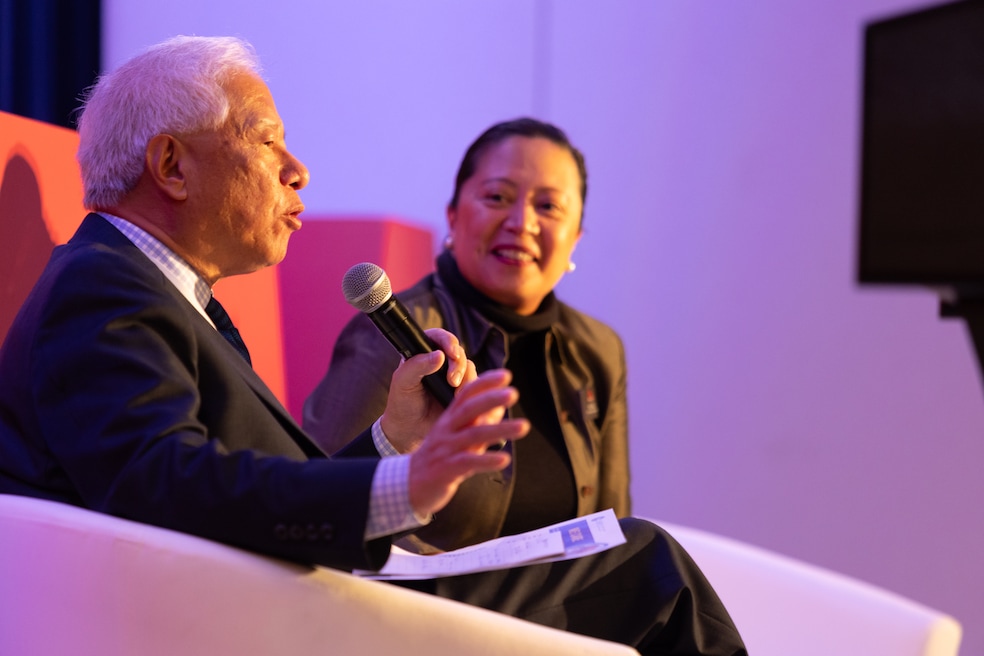Hope Atuel knows well some of the particular issues many Asian Americans and Pacific Islanders encounter as they chase the dream of homeownership.
When her parents moved in with her a few years ago, she joined the more than a quarter of Asian Americans who live in multigenerational households. That’s substantially more than the overall population, according to the U.S. Census. It’s a factor in the kind of homes many people in Atuel’s community look to buy and affects what sort of debt they may need to take on.
“There is this thing called 'filial piety,' which is really strong in the Asian American community, or honoring your parents,” Atuel, who is Filipina American, said in an interview. “My mother asked me to promise not to place her in a nursing home, so it’s a big consideration, for sure.”
For the past 20 years, Atuel has worked on issues like this for the Asian Real Estate Association of America, currently as its CEO. The group has grown to 43 chapters and nearly 19,000 members. Most of them are agents who help people buy or sell homes, but they also include lenders, settlement agents, architects and interior designers.
Each May during Asian American, Native Hawaiian and Pacific Islander Heritage Month, the group’s members gather in Washington, D.C., for a housing summit to talk to lawmakers about issues important to them, from combating discrimination to making it easier for aspiring homebuyers to establish their credit. This year’s event is May 21-23.
Data masks significant differences among subgroups
Atuel was attracted to a job at AREAA (pronounced “aria”) in part because it represents people like her and also because it aims to dispel myths that Asian Americans and Pacific Islanders are a monolithic group or that they don’t need help because they are a “model minority.”
As an example, Atuel points to Asian Americans’ 63% overall homeownership rate in 2022, which was 9 percentage points below white homeownership but above the rates for other people of color, including Black and Hispanic residents. The 63% figure masks significant differences among subgroups: The rate among Native Hawaiians is under 58%, and for Korean Americans, it's less than 55%, according to AREAA’s 2024 State of Asia America report. Native Hawaiians have a median income below $67,000, a particular challenge in that state, one of the more expensive U.S. housing markets.
“We’re constantly battling this thing, that we are perceived as being all rich. I love the movie "Crazy Rich Asians," but it perpetuates the myth,” Atuel said.
A related problem has been that, historically, Asian Americans have not been as visible in housing data as other racial or ethnic groups. One of AREAA’s major policy wins was getting the Census Bureau to create a distinct listing in the American Community Survey’s quarterly reports for Asian Americans, who until 2016 were included in the “other” category.
“We were in their office every week, and I think we just wore them down,” Atuel recalled. “It was a big win for our community, because if you’re not recognized, it’s like you don’t exist.”
Group asks lenders to rethink credit scores
Two-thirds of Asian Americans are foreign-born, Atuel said, and as they get established in the U.S., many are surprised to find that before they can buy a house, they need to have a credit score. People in her community tend to be very “debt-averse,” Atuel said, noting that to this day, her father has a credit card only because it’s linked to her account.
"You mean I have to be in debt to get more debt? That doesn’t make any sense," is how she described many people’s reaction to the credit requirement.
To address this challenge, Atuel’s organization has petitioned government housing agencies to offer alternative ways to build a credit score. In 2023, the Federal Housing Finance Agency, which regulates mortgage giants Fannie Mae and Freddie Mac, agreed that lenders should consider renters’ payment history as a factor. Rental payments are the best predictor of someone’s ability to pay a mortgage, Atuel said. Lenders are also increasingly using utility and cellphone bill payments, among others, to measure whether loan candidates are creditworthy.
AREAA joins push for better senior housing design
In terms of the multigenerational housing issue that Atuel and many other families face, AREAA is working with advocacy groups for older Americans, like AARP, to raise awareness among builders of the need for home design that better accommodates seniors’ needs. Wider hallways, walk-in showers, lower countertops and stairlifts are among the features Atuel cited as examples.
Buyers prioritize security and community
A disturbing trend Atuel has seen since the pandemic in the early 2020s has been hatred directed at Asian Americans. A 2022 survey her organization conducted among Asian Americans who had recently bought a home or were thinking of doing so asked what their top priorities were in their home search. The respondents did not emphasize good schools, a new or bigger home or other common answers. Instead, many cited the need for security, to live near other Asian Americans and to avoid discrimination.
“That’s sad that this is where they will find that sense of belonging,” Atuel said. “People ask, ‘Do I really belong in this country?’”
Atuel urged real estate agents and other professionals who want to work with Asian American clients to think about the “three C’s”: community, communication and culture. For example, it’s helpful to learn a bit of the language other than English spoken in a community and about popular foods.
“The key is just integrating yourself in the community, whether in church or community centers or just in your neighborhood,” she said. “My grandmother says, ‘If you’ve forgotten your language and your food, you’ve forgotten your culture.’”

